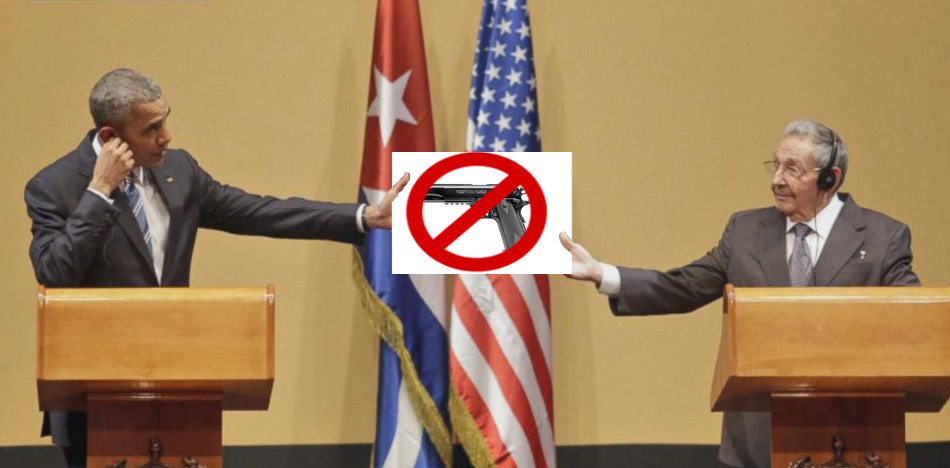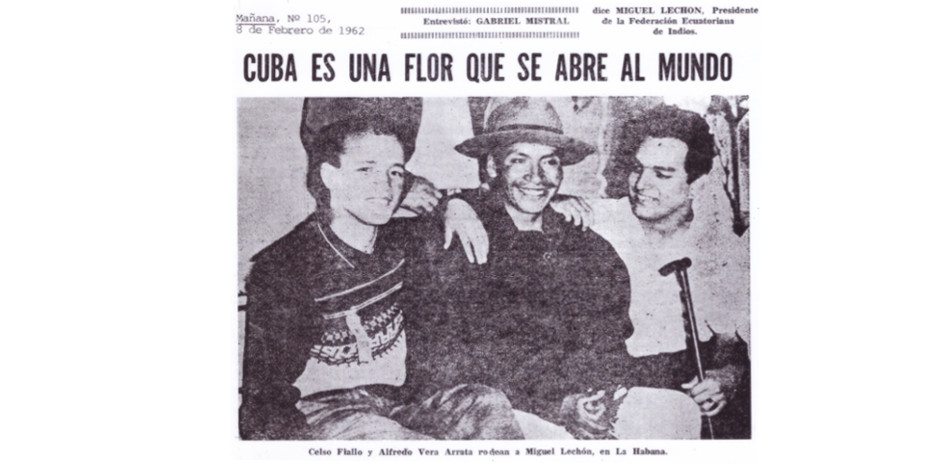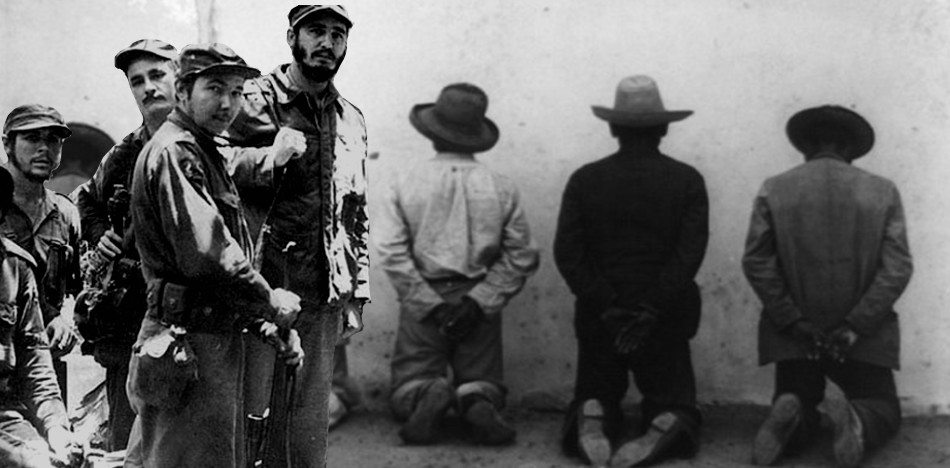
After the recent shooting at a public school in Florida, the immediate response of several citizens and politicians was the demand to disarm the civilian population or restrict access to certain weapons.
From a “social justice” position, the perpetrator is not the culprit but society as a whole and, therefore, weapons must be denied to all citizens. This is an inherited stance, typical of postmodernity, that denies the existence of the individual and his responsibility, and favors the collective.
But far from reducing violence, disarmament monopolizes force and makes citizens vulnerable, as the history of Cuba has shown.
Cuban disarmament
Like many young idealists, my father -Celso Fiallo- adhered to socialism. Seeing how minorities suffered, as in the case of the indigenous population in his native Ecuador, he found an answer in seeking the equality predicated by that ideology.
Years later, he discovered that this alleged equality implied the denial of all diversity, both cultural and individual.

On his second trip to Cuba, he was sent by the Communist Party to lead a group of ten to learn the art of prolonged warfare, with an emphasis on guerrilla and counter-guerrilla warfare.
Having attained goals without sustaining casualties,the group he led had achieved a certain level of prestige-which even took him China to deepen his studies with Mao himself. But in Cuba, the Che Guevara, who in charge of the course, never approached the group.
My father believes it was because he criticized Che’s idea that “the guerrilla member becomes a cold and selective killing machine”. He was also Fidel’s personal guest, whom Guevara feared. A fear was that was justified since Fidel’s betrayal eventually led to the capture and murder of Guevara.
During his time in Cuba, my father was an eyewitness to the Missile Crisis, when the United States discovered that Cuba housed long-range Soviet missiles.
He says that from Pinar del Río to Havana (109 miles) he saw three rows of armed people. One on the by the coast, the second on the road that bordered the beach and the third behind the road. Except for those on the road, which was for anti-aircraft artillery, the rest were volunteer militias that joined with assigned weapons. There were thousands, and there were more around throughout the island.
Yet once the crisis was over, Fidel ordered the disarmament of the militias. Since then, only government forces could have weapons.
Weapons for the Government, not for the people
We consulted with Rebeca Esther Ulloa Sarmiento, Cuban journalist and researcher, co-author of “Fidel Castro, the last dinosaur” and other political books, about what happens when a government takes away from its citizens the ability to defend themselves and how this process is experienced by exiles in the United States.
Ulloa says that Castro convinced the people that armament was not necessary. One week after seizing power, Fidel Castro said: “Weapons for what? to fight against whom? against the Revolutionary Government, which has the support of all the people?”. The audience present answered: “No!”
Officers, soldiers and revolutionary groups handed over their weapons. Later, many of them were executed or imprisoned.

While there were some attempts to protest, they were immediately suppressed and the weapons ended up in the hands of Castro. Therefore, says Ulloa, the slogan “weapons for what?” was a euphemism, because what he really meant was: “Weapons for me”.
Prohibition as a solution
As a Cuban who lived through the disarmament of her people, and now seeing the consequences after more than 60 years of suffering inside and outside the island – where many supported disarmament – Ulloa still asks herself every day what would have happened if the people had answered differently to the question “weapons for what?”
Although she regrets the shooting at the school in Florida, the state where she lives, and call it a terrible event, she affirms that an armed teacher was enough to stop the massacre. Ulloa calls it “an irrefutable truth” that an unarmed population is unprotected in any circumstance.
At the same time, she emphasizes that citizens should not be satisfied with carrying a weapon, it is imperative to find a solution that will lead us to avoid the use of weapons in self-defense.
Constitutional right
Ulloa considers it ironic that the groups who try to repeal the Second Amendment that allows them to form “militias” against a tyrant are commonly the same ones that consider Trump dangerous.
The Second Amendment of the US Constitution says: “A well-ordered Militia is necessary for the security of a free State, the right of the people to own and bear arms will not be infringed.”
Ulloa proposes that this contradiction is manifested by the mass media that openly opposes the president, while television content bashes the constitutional right that would allow overthrowing a tyranny.
Moreover, mass media tends to highlight bloody and violent facts over stories of violent crimes that were prevented because armed civilians disabled criminals because-paradoxically-sensationalism and morbid content increase ratings.
Message to US citizensIt is precisely the great respect for the individual in the United States that leads to autonomy and freedom, Ulloa states. It allows citizens to achieve goals through their own effort.
She concludes that it was the Founding Fathers, the creators of the Constitution, who equated the success of the country to the sum of the individual success. Therefore, she urges not to allow individual failure to limit constitutional rights.
As a society, we are obliged to contribute to an accurate diagnosis and, of course, to find definitive solutions. Of course, the solution cannot be to throw away the individual rights we have as citizens of the United States.
Neither of the interviewees hurt anyone throughout their life. They do not promote violence. They lived it up-close. Both those who exiled themselves from a dictatorship that disarmed its citizens, and those who were trained with the same weapons that were later taken away so that the revolutionaries would not do what their leader did, tell us that disarming citizens only maintains the monopoly of power among a few. Far from reducing violence, it imposes a culture of submission.
Source: PanamPost
